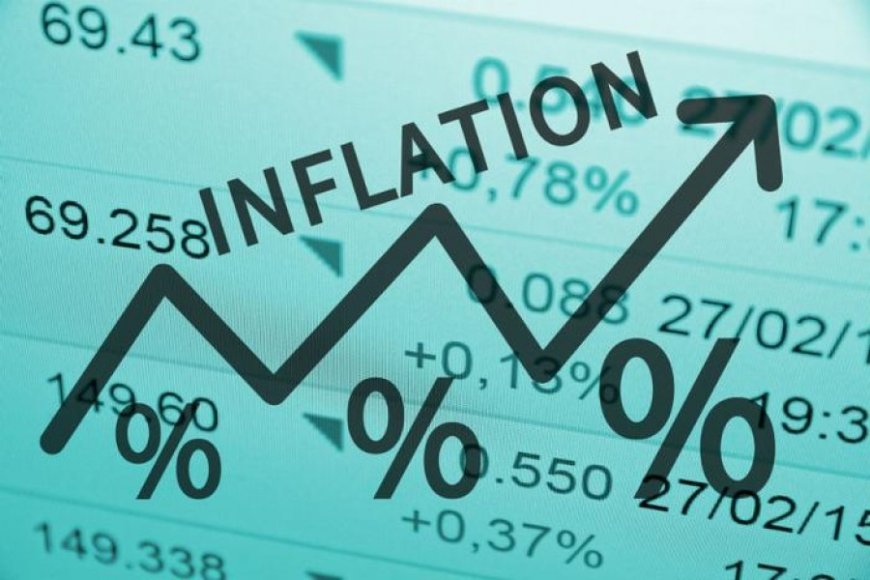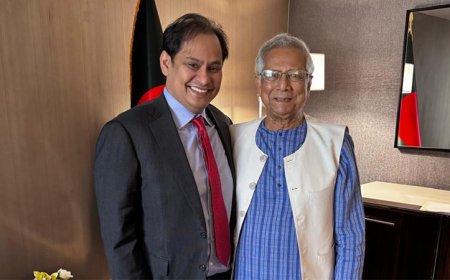Experts advocate for market reforms and equitable pricing to curb inflation
Experts advocate for market reforms and equitable pricing to curb inflation

At a policy conclave, stakeholders highlighted the importance of a digitized, integrated value chain, fair pricing, and lower interest rates to ensure reasonable prices for essential commodities. The event, titled "Fair Prices of Food Commodities: Exploring Strategies for Market Supervision," was held at a city hotel on Sunday, organized by the daily Bonik Barta. The discussion was moderated by the daily's editor Dewan Hanif Mahmud, with Dr. Khandaker Golam Moazzem, Research Director at the Center for Policy Dialogue (CPD), delivering the keynote address.
Dr. Moazzem presented a paper titled "Integration of Food Supply Chains in Bangladesh: Digitalization for Efficiency, Transparency, Traceability, Legal Culpability, and Accessibility," emphasizing the need for business licenses and addressing the lack of adequate data at the Competition Commission, which undermines its effectiveness. He also discussed the creation of an integrated food value chain and permanent setups, noting that India has had a commission since 1965 focused on agricultural reforms and bank accounts. He mentioned the problem of shell companies, calling for their regulation to prevent oligarchy. Dr. Moazzem advocated for IT-based solutions in managing local markets, including products like rice, potatoes, and imported essentials such as sugar and edible oil, predicting that digital transformation would take 3-5 years to fully implement.
Commerce Adviser SK Bashir Uddin noted that the previous government faced economic challenges due to fixed lending rates. He highlighted the complexities in rice procurement pricing and pledged to meet with CPD to address the issue. He also criticized the existence of a criminal nexus under Hasina’s administration, pointing to the destruction of institutions and the need for tax justice, sector-specific approaches, and VAT sensitivity. Bashir Uddin expressed concerns about the banking sector, citing an individual withdrawing over Tk 1 trillion from a single bank, with 90% of loans being non-performing.
Economist Prof. Anu Muhammad criticized the government for prioritizing IMF conditions over consumers, particularly the increase in energy prices to secure a $4 billion loan, which has impacted businesses and exports. He also called for more transparency in loan utilization, mentioning that outdated IMF and World Bank policies persist.
NBR Chairman Abdur Rahman Khan discussed Bangladesh's low tax-to-GDP ratio of 7.9%, compared to Western countries' 45%, stressing the need for broader tax collection. He pointed out that two-thirds of taxes come from the poor, and many taxpayers don’t file returns. He also noted that VAT remains unchanged, with businesses paying the government, but consumers bearing the burden.
Vice President of CAB SM Nazer Hossain highlighted rising rice prices due to low government stocks, particularly ahead of Ramadan, and questioned whether businesses could meet their promises. He also noted that farmers in North Bengal don't receive fair prices for vegetables, despite high prices for consumers.
Farid Ahmed Russel, President of Karwan Bazar 2 No Aratdar Merchant Association, attributed rising potato prices to government pressure and the absence of receipts from wholesalers and cold storage operators. Sabir Hasan Nasir, managing director of Swapno chain, dismissed claims of a syndicate and argued that while paddy prices rose by 34%, rice prices only increased by 22%.
Experts discussed the need for formalization and digitalization, noting that Bangladesh lags behind Sri Lanka (43%) and Thailand (64%) with only 2% digitalization. Abdul Khalek, a rice miller from Kushtia, revealed that 80% of mills in the area had gone bankrupt due to unfair competition with large oligarchs.
Kazi Zahin Hasan of Kazi Farms attributed high ingredient prices to the Ukraine-Russia war and the previous government’s increased money supply, calling for a balanced economic policy with lower interest rates and an open market system. Sarjis Alam from the Anti-Discrimination Student Movement (ADSM) criticized political figures for stifling open debate, accusing them of dividing markets and territories. He called for decentralizing imports to boost competition.
Umama Fatima of ADSM stressed the need for win-win policies for both producers and consumers and questioned government policies on Ramadan-related products and higher taxes on fruits.
Banking challenges were discussed by Mahbubur Rahman, CEO of Mutual Trust Bank, who mentioned the banking sector's liquidity issues and the rise in non-performing loans. Md Obayedullah Al Masud, Chairman of Islami Bank Bangladesh Ltd, outlined the bank’s expansion plans and defended the role of middlemen in the supply chain, blaming price issues on extortion.
Mostofa Haider Chowdhury, director of TK Group, called for a comprehensive supply chain strategy, pointing out that developed countries regulate prices through tariff management and strategic reserves.
What's Your Reaction?





















































































